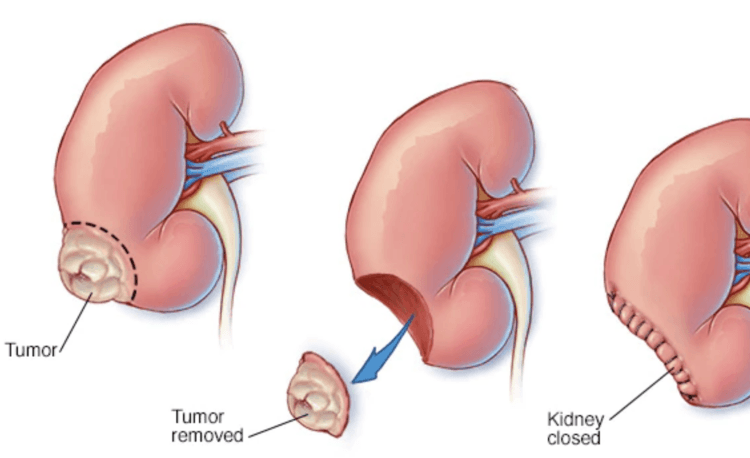Nephrectomy in Czech Republic
Search and Compare the Best Clinics and Doctors at the Lowest Prices for Nephrectomy in Czech Republic

Find the best clinics for Nephrectomy in Czech Republic
With Medijump you can browse 3 facilities offering Nephrectomy procedures in Czech Republic. The cheapest price available is $6,141 in Prague, Velke Mezirici. And for the cheapest price globally, prices start from $1,228 in Morocco.
Nephrectomy in Prague
Price: $ 6,141
Morocco offers the best prices Worldwide
Price: $ 1,228
From 14 verified reviews
tomáš janíček, 16 September 2020
Dnes jsem přijel na operaci Kýly,kterou podstoupit zítra ráno .Musím říct že moc příjemný celý personál.Za mě je to moc dobrá nemocnice doporucuji
Canadian Medical Care, can be found in Bucharova, Prague, Czech Republic and offers its patients Nephrectomy procedures as well as 210 other procedures, across 6 different procedure categories. At present, there is no pricing information for Nephrectomy procedures at Canadian Medical Care. The pricing information is quite specialised, so it's only available on request, and the average price is around $6,141. The lead specialist at the Hospital will be carrying out all the treatments, and Canadian Medical Care is not accredited by any recognised accreditations institutions.
Malvazinky Rehabilitation Center, can be found in Bucharova, Prague, Czech Republic and offers its patients Nephrectomy procedures as well as 44 other procedures, across 8 different procedure categories. The price of a Nephrectomy procedure starts from just ฿221,000, and the average price is around ฿220,999. Currently, there's no information available about the doctors at the Clinic, and Malvazinky Rehabilitation Center is not accredited by any recognised accreditations institutions.
- Home
- Czech Republic
WHY US?
At Medijump, we're making medical easy. You can search, compare, discuss, and book your medical all in one place. We open the door to the best medical providers worldwide, saving you time and energy along the way, and it's all for FREE, no hidden fees, and no price markups guaranteed. So what are you waiting for?

Free

Best Price

Widest Selection

Risk-Free
What you need to know about Nephrectomy in Czech Republic

Nephrectomy is the surgical removal of all or part of a kidney. There are two types of surgery for nephrectomy: radical nephrectomy (to remove the entire kidney and tissues of fat that surround the kidney) and partial nephrectomy (removes only diseased tissue from a kidney and leaves the healthy tissue in place). The surgery is performed to treat kidney cancer and other kidney diseases. Sometimes, it is also performed to remove a healthy kidney from a donor for a transplant.
What does a Nephrectomy Procedure Involve?
Nephrectomy can be performed through laparoscopic or open surgery. Both are performed under general anesthetic. Laparoscopic nephrectomy is usually performed to remove part of your kidney. Your surgeon makes small incisions in your abdomen to insert the laparoscope and small surgical tools. If your entire kidney needs to be removed, your surgeon will use open surgery. During open surgery, your surgeon makes one large incision on your abdomen or along your side.
How Long Should I Stay in Czech Republic for a Nephrectomy Procedure?
You are required to stay in the hospital for two to five days. Plan to stay in Czech Republic for around 10 to 14 days because you are likely to develop deep vein thrombosis after the surgery. You will also need to attend follow-up checkups, during which your surgeon will remove your stitches.
What's the Recovery Time for Nephrectomy Procedures in Czech Republic?
The recovery period after a nephrectomy may take around three to six weeks. During your recovery period, you should avoid any strenuous activity and follow the post-operative instruction that your surgeon gives you. The instruction usually includes dietary restriction, exercise, and care for your healing wounds
What sort of Aftercare is Required for Nephrectomy Procedures in Czech Republic?
Most people can function well with only one kidney. After the procedure, you can resume your daily routine and activities after 3 weeks. However, you will likely need checkups to monitor kidney function. These include monitoring your blood pressure, waste filtration, and protein urine levels. Since you only have one kidney, you will need to eat a healthy diet and engage in regular exercise to preserve normal kidney function.
What's the Success Rate of Nephrectomy Procedures in Czech Republic?
Nephrectomy is generally safe and the risks are very small. Partial nephrectomy has about a 95% success rate. Nevertheless, the procedure carries potential risks, such as bleeding, injury to nearby organs, infection, post-operative pneumonia, and rare allergic reaction to anesthesia.
Are there Alternatives to Nephrectomy Procedures in Czech Republic?
For certain illnesses, there are alternatives that do not need the removal of a kidney. The alternatives include renal embolization.
What Should You Expect Before and After the Procedure
After nephrectomy, you will no longer experience symptoms that you had before the surgery. The risk of cancer, as well as cancer spreading to other parts of your body, is also reduced. Remember that taking care of your remaining kidney is extremely important.
Whilst the information presented here has been accurately sourced and verified by a medical professional for its accuracy, it is still advised to consult with your doctor before pursuing a medical treatment at one of the listed medical providers
No Time?
Tell us what you're looking for and we'll reachout to the top clinics all at once
Enquire Now

Popular Procedures in Czech Republic
Prices Start From $2,487

Prices Start From $825

Recommended Medical Centers in Czech Republic for Nephrectomy

- Interpreter services
- Translation service
- Religious facilities
- Medical records transfer
- Medical travel insurance
- Health insurance coordination
- TV in the room
- Safe in the room
- Phone in the room
- Private rooms for patients available

- Interpreter services
- Translation service
- Religious facilities
- Medical records transfer
- Medical travel insurance
- Health insurance coordination
- TV in the room
- Safe in the room
- Phone in the room
- Private rooms for patients available

- Interpreter services
- Translation service
- Religious facilities
- Medical records transfer
- Medical travel insurance
- Health insurance coordination
- TV in the room
- Safe in the room
- Phone in the room
- Private rooms for patients available

- Interpreter services
- Translation service
- Religious facilities
- Medical records transfer
- Medical travel insurance
- Health insurance coordination
- TV in the room
- Safe in the room
- Phone in the room
- Private rooms for patients available

- Interpreter services
- Translation service
- Religious facilities
- Medical records transfer
- Medical travel insurance
- Health insurance coordination
- TV in the room
- Safe in the room
- Phone in the room
- Private rooms for patients available

- Interpreter services
- Translation service
- Religious facilities
- Medical records transfer
- Medical travel insurance
- Health insurance coordination
- TV in the room
- Safe in the room
- Phone in the room
- Private rooms for patients available
Nephrectomy in and around Czech Republic
The Czech Republic is a landlocked country in Central Europe and it has a rich and eventful history, as well as amazing attractions. From medieval towns and magnificent castles to picturesque national parks and relaxing spa resorts, it has a lot to offer. The country also boasts top-quality healthcare and is emerging as a popular medical tourism destination. Medical procedures in the country are performed with the latest technology and techniques. The medical professionals are highly qualified, well trained, and internationally recognized. Besides, the cost of medical procedures in the country is extremely competitive. Medical tourists can make significant savings compared to most other countries in Europe. Cosmetic surgery is particularly popular among international medical tourists.
Popular Parts of Czech Republic
Prague is the capital and is popular for its fine dining, eccentric nightlife, and wonderfully preserved medieval buildings with Gothic architecture, such as Prague Castle, the 14th-century Charles Bridge, and the Astronomical Clock. Along with Prague, Ceský Krumlov and Brno are frequently visited by tourists as well.
Weather and Climate in the Czech Republic
Due to its location, the Czech Republic has a mostly temperate climate. Extreme weather is rare, but the summers can get hot and the winters cold. Summer starts in June and the days can be scorching hot. The average temperature is around 26°C, but in recent years, it tends to rise to 37°C. Winter, from November to March, can get rather cold. The average temperatures drop to around 2°C during the day and -2°C at night, with some snowfall and rain. Spring (March-May) and autumn (September – October) have beautiful weather.
Getting around in the Czech Republic
Václav Havel Airport Prague is the main airport where international visitors fly into and out of the Czech Republic. It serves numerous flights to many cities around Europe and Asia, including London, Moscow, Dubai, and Seoul. The Czech Republic has an affordable and reliable public transport system. Domestic flights are available, but rarely necessary. The rail network is affordable and very comprehensive, covering almost every city and town in the county. The bus also has extensive coverage throughout the country. Public transport within cities is also excellent. In major cities, you can opt for the metro, tram, bus, or trolleybuses. Taxis are widely available and are metered, but the fares are higher at night.
Tourist Visas in the Czech Republic
Nationals of all EU countries do not need a visa to visit and stay in the Czech Republic. The country is a part of the Schengen area, which means citizens of around 62 countries can stay for up to 90 days without a visa. These visa-exempt countries include Australia, Canada, the US, and South Korea. Citizens of other countries are required to apply for a visa before visiting the country. Those who want to receive medical care should obtain a Czech Republic Visa for Medical Purposes.
Additional Information
- Local Currency: Czech Koruna/Czech Crown (CZK) is the currency of the Czech Republic. 1 USD is equivalent to 22.98 CZK. Note that the euro is not widely accepted in the country.
- Money & Payments: ATMs are widespread around the Czech Republic. Major credit cards, such as MasterCard and Visa, are accepted for many types of transactions, but you may need to pay in cash for smaller amounts. Tipping is expected, especially in restaurants. Tip at least 10% of the bill.
- Local Language: The official and most commonly spoken language is Czech, but Slovak is widely spoken as well. Many people, particularly in major cities, can speak English and German.
- Local Culture and Religion: Most of the population is religiously unaffiliated and does not believe in God. However, Christianity is the largest religion. Judaism, Islam, Buddhism, and Paganism are also practiced by a small percentage of the population.
- Public holidays: New Year’s Day, Easter Monday, Liberation Day, Sts Cyril & Methodius Day, Jan Hus Day, Republic Day, and Czech Statehood Day are some of the most important public holidays in the Czech Republic.
Popular Searches
- Plastic Surgery in Thailand
- Dental Implants in Thailand
- Hair Transplant in Thailand
- Breast Augmentation Thailand
- Gastric Sleeve in Thailand
- Gender Reassignment Surgery in Thailand
- Laser Hair Removal in Bangkok
- Botox in Bangkok
- Dermatology in Bangkok
- Breast Augmentation in Bangkok
- Coolsculpting in Bangkok
- Veneers in Turkey
- Hair Transplant in Turkey
- Rhinoplasty in Turkey
- Stem Cell Therapy in Mexico
- Rhinoplasty in Mexico
- Liposuction in Mexico
- Coolsculpting in Tijuana
- Rhinoplasty in Korea
- Scar Removal in Korea
- Gastric Sleeve in Turkey
- Bone Marrow Transplant in India
- Invisalign in Malaysia
- Plastic Surgery in the Dominican Republic
- Tummy Tuck in the Dominican Republic
- Plastic and Cosmetic Surgery in Poland
- Rhinoplasty in Poland
- Hair Implant in Poland
- Dental Implants in Poland
- IVF in Turkey


